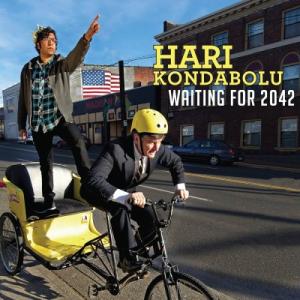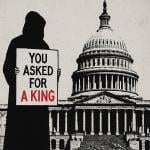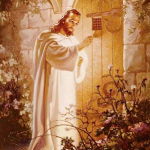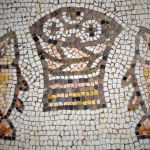Here’s the headline CNN gave to a segment it ran earlier this month: “Evangelicals explain differences between some White and non-White evangelicals.”
This is CNN so, of course, that headline was for a panel discussion, and cable news panel discussions do not “explain” anything well.* So allow me to explain instead.
Here is the difference (singular) between white and non-white evangelical Christians:
1. Non-white evangelicals insist on the full humanity of non-white people.
2. White evangelicals do not.
That’s it. That’s the whole deal.
This is not at all the only difference — there are huge theological differences as well, too many to count. But all of those other differences flow from this one starting point.
I am not being glib or trying to dismiss those many, significant theological differences. I am trying to explain them. Because this is their source, their root, their cause, their reason, and their explanation.
 White evangelical theology is the product and the consequence of this one distinction. It would not exist in anything like its current form if not for this. It could not endure in that current form if this distinction were to change.
White evangelical theology is the product and the consequence of this one distinction. It would not exist in anything like its current form if not for this. It could not endure in that current form if this distinction were to change.
That CNN panel discussion wants to be about “the changing face of American evangelicalism.” It’s based on and intended to promote CNN senior digital writer John Blake’s “analysis” piece arguing that the changing face of American evangelicalism is being ignored by, as he says, people like himself, and he wants to correct that:
The constant linking of Whiteness with evangelical Christianity, though, obscures another major story. There are millions of Black, Latino, African and Asian evangelical Christians who are already profoundly changing America. They represent what one scholar calls the “de-Europeanization of American Christianity.”
And these non-White evangelicals will likely not only save the American church but transform the nation’s politics.
Or not.
Maybe the best response to Blake’s argument is just to re-watch Hari Kondabalu’s “2042” bit:
I appreciate the hopeful optimism driving Blake’s argument (“Hey teammate!” “2042!”), but its premised on the notion that the “evangelical” theology of “Black, Latino, African and Asian evangelical Christians” is identical to that of white evangelicals, and that only their politics is different. And that’s not at all the case.
The “millions of Black, Latino, African and Asian evangelical Christians” Blake refers to here certainly do fall within the fuzzy bounds of “evangelical” Christianity as outlined by historian David Bebbington’s famous quadrilateral, but not at all in the same way as those he devised that quadrilateral to discuss. (That makes sense — the quadrilateral is from Bebbington’s book Evangelicalism in Modern Britain: A History from the 1730s to the 1980s.) None of those four qualities — biblicism, crucicentrism, conversionism, activism — means anything like the same thing for these evangelicals as it does for white evangelicals.
Black American evangelicals are biblicistic, but with a vastly different hermeneutics than the slavery-defending proof-texting concordance-ism of white evangelicalism. They are conversionist, but with an extremely different soteriology. They are “crucicentric” in ways that go far beyond a legalistic catechizing of theories of atonement. And the whole of the internet doesn’t allow us space enough to discuss the massive differences between what “activism” means or has meant for Black and white evangelicalism.
If you blur away those theological differences, you can wind up mistakenly thinking that “white evangelical” is just a demographic, ethnic category, rather than a theological/political one. That can trick you into believing that only white people can subscribe to white evangelicalism. That mistake is leveraged by a whole industry of players and scammers seeking the power or profit that can be made by proclaiming themselves to be the spokespeople for “millions of Black, Latino, African and Asian evangelical Christians” despite representing nothing more than a reiteration of the white theology and white politics of white evangelicalism.
(This relates back to our recent discussion of “Differing weights and differing measures.” It also relates to the colonial laundering of white evangelicalism repeatedly carried out by misrepresenting the meaning of “global evangelicalism.”)
I support John Blake’s hope that the political and cultural dominance of white evangelicalism will be eclipsed by something else and I wholeheartedly agree with him that any of the forms of non-white evangelical Christianity would be a great improvement for the church and the nation and, well, an improvement in everything in every way.
But demography is not destiny.
And “white evangelicalism” is not a demographic category. The adjective “white” does not refer to the demography of its adherents, but to the content of its theology and of its politics. (The white politics determines the white theology. And vice versa.)
What is the difference between white and non-white evangelical Christians? It is not that the former are white and the latter are not, but that the theology of the former is white and the theology of the latter is not.
And why is that? Because:
1. Non-white evangelicals insist on the full humanity of non-white people.
2. White evangelicals do not.
* Black pastor John Onwuchekwa does as good a job as the format will allow in that segment, but there’s a reason he looks tired doing so.

















